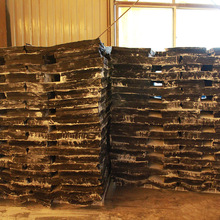剧情简介
This is the third in a series of interviews with international experts to seek ways toward a peaceful resolution for the North Korean nuclear crisis on the occasion of the 67th anniversary of The Korea Times, which falls on Nov. 1. ― ED.
By Kim Jae-kyoung
U.S. President Donald Trump is often criticized for his inflammatory rhetoric on North Korea.
Many argue his reckless words have complicated the situation and escalated tension on the Korean Peninsula, raising the possibility of Pyongyang making a miscalculation which could lead to a military conflict.
Balbina Hwang, a former special adviser to the U.S. State Department, said people should not put too much weight on Trump's improvised rhetoric because it does not mirror the U.S.'s official policies on North Korea.
She added it is also important to recognize Pyongyang's nuclear weapons development and missile tests are the source of rising tensions on the peninsula, not U.S. rhetoric or policies.
"Trump's tweets and other utterances should be interpreted within the context they are meant as rhetorical statements that may reflect his personal feelings at any given time, but are not necessarily reflective of official U.S. policies," she said in a recent interview.
She said U.S. policies are more carefully and judiciously crafted by a deliberative and collaborative process which includes professional diplomats, military strategists and national security experts.
"So what matters more are the official policies and actual actions implemented rather than the rhetoric," said Hwang, a visiting professor at Georgetown University's Center for Security Studies.
"Indeed, the same principle applies to the North Korean leadership. We should pay more careful attention to the North's actions and official policies rather than the fiery rhetoric."
She explained official U.S. policy continues to be that diplomacy is still the first and primary policy choice, but it will be supported by strong pressure to demonstrate to Pyongyang its continued violations of international principles will not be tolerated.
The Washington-based North Korea expert pointed out that the Kim Jong-un regime has not changed its attitude even under the leadership of President Moon Jae-in, who clearly offered a very different tone and attitude toward North Korea.
"Thus, it seems clear the responsibility for the lack of diplomatic or a negotiated path toward resolution of tensions lies with North Korea, and not with other parties, such as the U.S. or South Korea," she said.
NK's calculation
Hwang, who served as a special adviser on East Asian affairs for the George W. Bush administration, believes it is not a good idea to take military options off the table to appease Kim Jong-un.
"Ultimately, a final resolution of the nuclear issue is not likely to succeed unless the military option becomes acceptable for all parties, or at a minimum both the U.S. and South Korea," she said.
According to her analysis, the nuclear issue is not the cause of tensions on the peninsula, but a product of the underlying causes of instability _ the unresolved status of the Korean War, and the division of Korea.
In this regard, as long as South and North Korea continue to exist in fundamental opposition to the other, there cannot be peace on the Korean Peninsula.
"Thus, the only way to secure peace is to bring the Korean War to a permanent end," she said.
She emphasized that since the Armistice is a military agreement that only technically stopped the military conflict, and included the agreement that a permanent "political" solution should be reached, any negotiations with the North must focus on returning to the existing Armistice, and working on its expansion and completion.
"Attempting to start with negotiations focused on nuclear weapons, which North Korea has insisted is not possible, will only revive the cycle of the incomplete processes already attempted for the last two decades," she said.
The former research fellow for the Institute for National Security Strategy in Seoul said diplomacy and negotiations are unlikely to resolve the North Korea nuclear crisis as Pyongyang remains lukewarm to any dialogue.
Kim Jong-un has refused to engage with China, its traditional ally, in any high-level dialogue.
The young dictator has also made it consistently clear that while he has not ruled out dialogue with the U.S. in principle, its nuclear weapons programs are absolutely not on the table for discussion.
"Thus, the impasse in resuming any dialogue remains. Diplomacy and negotiations only work if all the relevant parties are willing to actually engage in the process," she said.
"Similarly, in contemplating the possibility of a peaceful resolution, this depends entirely on the willingness of all parties to commit to such an outcome."
While it seems the North also prefers a peaceful resolution, it has shown no actual willingness to pursue such a process, as it continues instead with aggressive actions.
"It is likely Pyongyang has calculated that the other parties' preference for avoiding a military solution is much too costly and they ultimately will stop short of pursuing this final option," she said.
By Kim Jae-kyoung
 |
| Balbina Hwang |
Many argue his reckless words have complicated the situation and escalated tension on the Korean Peninsula, raising the possibility of Pyongyang making a miscalculation which could lead to a military conflict.
Balbina Hwang, a former special adviser to the U.S. State Department, said people should not put too much weight on Trump's improvised rhetoric because it does not mirror the U.S.'s official policies on North Korea.
She added it is also important to recognize Pyongyang's nuclear weapons development and missile tests are the source of rising tensions on the peninsula, not U.S. rhetoric or policies.
"Trump's tweets and other utterances should be interpreted within the context they are meant as rhetorical statements that may reflect his personal feelings at any given time, but are not necessarily reflective of official U.S. policies," she said in a recent interview.
She said U.S. policies are more carefully and judiciously crafted by a deliberative and collaborative process which includes professional diplomats, military strategists and national security experts.
"So what matters more are the official policies and actual actions implemented rather than the rhetoric," said Hwang, a visiting professor at Georgetown University's Center for Security Studies.
"Indeed, the same principle applies to the North Korean leadership. We should pay more careful attention to the North's actions and official policies rather than the fiery rhetoric."
She explained official U.S. policy continues to be that diplomacy is still the first and primary policy choice, but it will be supported by strong pressure to demonstrate to Pyongyang its continued violations of international principles will not be tolerated.
The Washington-based North Korea expert pointed out that the Kim Jong-un regime has not changed its attitude even under the leadership of President Moon Jae-in, who clearly offered a very different tone and attitude toward North Korea.
"Thus, it seems clear the responsibility for the lack of diplomatic or a negotiated path toward resolution of tensions lies with North Korea, and not with other parties, such as the U.S. or South Korea," she said.
NK's calculation
Hwang, who served as a special adviser on East Asian affairs for the George W. Bush administration, believes it is not a good idea to take military options off the table to appease Kim Jong-un.
"Ultimately, a final resolution of the nuclear issue is not likely to succeed unless the military option becomes acceptable for all parties, or at a minimum both the U.S. and South Korea," she said.
According to her analysis, the nuclear issue is not the cause of tensions on the peninsula, but a product of the underlying causes of instability _ the unresolved status of the Korean War, and the division of Korea.
In this regard, as long as South and North Korea continue to exist in fundamental opposition to the other, there cannot be peace on the Korean Peninsula.
"Thus, the only way to secure peace is to bring the Korean War to a permanent end," she said.
She emphasized that since the Armistice is a military agreement that only technically stopped the military conflict, and included the agreement that a permanent "political" solution should be reached, any negotiations with the North must focus on returning to the existing Armistice, and working on its expansion and completion.
"Attempting to start with negotiations focused on nuclear weapons, which North Korea has insisted is not possible, will only revive the cycle of the incomplete processes already attempted for the last two decades," she said.
The former research fellow for the Institute for National Security Strategy in Seoul said diplomacy and negotiations are unlikely to resolve the North Korea nuclear crisis as Pyongyang remains lukewarm to any dialogue.
Kim Jong-un has refused to engage with China, its traditional ally, in any high-level dialogue.
The young dictator has also made it consistently clear that while he has not ruled out dialogue with the U.S. in principle, its nuclear weapons programs are absolutely not on the table for discussion.
"Thus, the impasse in resuming any dialogue remains. Diplomacy and negotiations only work if all the relevant parties are willing to actually engage in the process," she said.
"Similarly, in contemplating the possibility of a peaceful resolution, this depends entirely on the willingness of all parties to commit to such an outcome."
While it seems the North also prefers a peaceful resolution, it has shown no actual willingness to pursue such a process, as it continues instead with aggressive actions.
"It is likely Pyongyang has calculated that the other parties' preference for avoiding a military solution is much too costly and they ultimately will stop short of pursuing this final option," she said.








